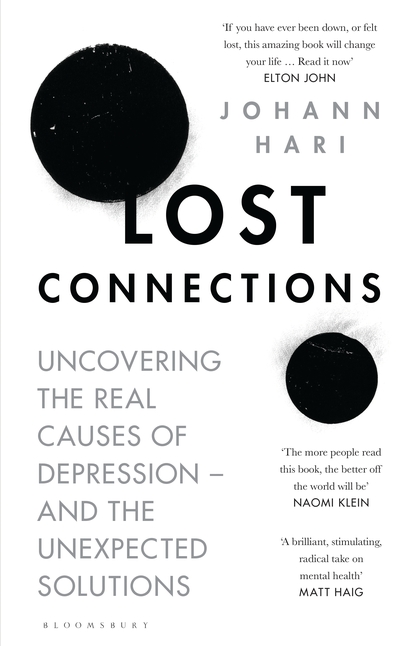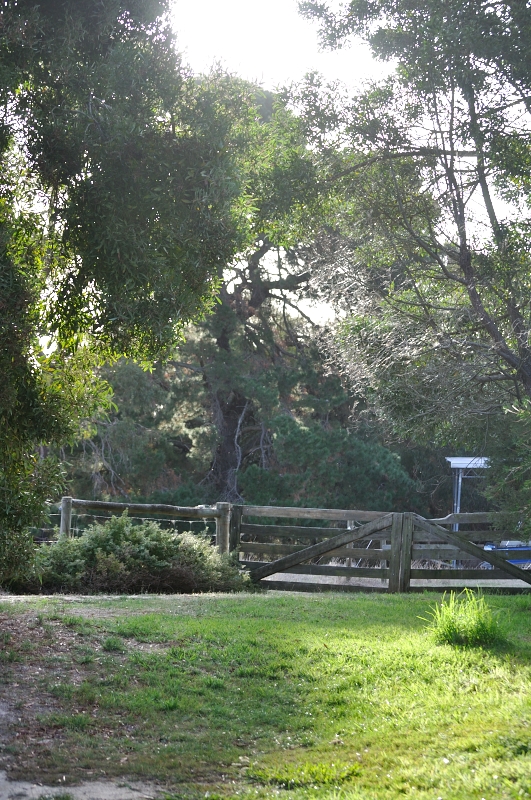 Reading on from H is for Hawk, but in some of the same territory…
Reading on from H is for Hawk, but in some of the same territory…
Though there’s an element of the personal in Lost Connections: Uncovering the Real Causes of Depression – and the Unexpected Solutions, the book would fit more comfortably on the self-help shelves. The author, Johann Hari, is a journalist and it shows (though not in a bad way) because the book is punchy, fast-paced, well-structured into chapters that discuss the causes and cures for depression, and very easy to digest. Again, not in a bad way.
Hari starts by revealing that he has skin in the game; he was diagnosed with depression when he was 18, and spent half his life taking antidepressants (he says his first tablet was “a chemical kiss”) but he doesn’t treat the reader to what he describes as a “long stretch of pain porn”. Then, he gets stuck in, demolishing two long-held “stories” about depression. Number one is the old story, the one that public health campaigns and organizations such as Beyond Blue are trying to eradicate. It’s the idea that the depressed person is weak, indulgent, and just needs to pull his or her socks up and get a grip because depression is a personal failing, shameful and embarrassing. The newer story, the one we’re told now, is that depression is a disease, like diabetes. Brain chemicals aren’t working properly; they’re out of balance or you’re not producing enough of them.
 Now, with millions of people all over the western world diagnosed with depression and taking medication (some scary figures, like nearly one in four middle aged women in the US prescribed with antidepressants), it’s time to ask why. Is there something about the way we live now that’s causing this mental health epidemic?
Now, with millions of people all over the western world diagnosed with depression and taking medication (some scary figures, like nearly one in four middle aged women in the US prescribed with antidepressants), it’s time to ask why. Is there something about the way we live now that’s causing this mental health epidemic?
Hari believes he has uncovered nine basic causes and I won’t go through them one by one, but they all make sense to me. Disconnection is the key. Disconnection from, for example, meaningful work, from other people, from the natural world, from a hopeful or secure future. I’ve often thought that depression can be a perfectly rational and realistic response to a stuck, unsatisfactory, painful life. Imagine that you’re a young man or woman of 25 who’s overweight and unhealthy; you can’t get full-time work so you’re prepping food for MacDonald’s; you’re stuck living with an uncongenial big sister and her partner; you can’t afford a car; all your friends are travelling, getting partners, getting an education… You’d be depressed, wouldn’t you? Or perhaps you’re a young Iranian man, well educated, ambitious, energetic, and you’ve been stuck in an Australian-run facility for refugees on Manus Island for the past four years… Perhaps I’d better not go there.
Hari doesn’t deny that there are genetic factors in play with depression, and that medication can play a role. He says “some credible scientists argue that they give some temporary relief to a minority of users, and that shouldn’t be dismissed”. But he argues forcibly against the narrative spun by the billion dollar industry we call Big Pharma. They’d have us believe that “depression is caused by a chemical imbalance in the brain, and that the primary solution for most people is a chemical antidepressant.” There’s a nasty tale in there of the industry putting a positive spin on unimpressive research, cherry-picking the good stats and burying the failures and finding more and more ways to sell their pills.
The positives from this book are the things we can do to help ourselves and each other. Prescriptions, if you like. Many are simple actions, such as being with friends, walking in nature, volunteering, gardening. And finding “sympathetic joy”. That’s a phrase I’m familiar with from my Buddhist dabblings. It simply means cultivating the feeling of being happy for other people. Loving kindness meditation, prayer, compassion…
There’s the ideal, and then there’s the real. Call me pessimistic, but I can’t see things changing anytime soon when there’s so much money at stake.

